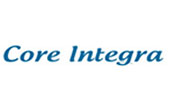Trademark Registration
Trademark registration is a legal process that provides protection for words, phrases, symbols, designs, or a combination of these elements that distinguish the goods or services of one party from those of others.
Trademark Registration Process:
1.Trademark Search: Before filing a trademark application, it's important to conduct a comprehensive search to ensure that the proposed trademark is not already in use or registered by another party. This helps to avoid potential conflicts and rejection of the application.
2. Filing the Application : Once you've ensured that your desired trademark is available, you can file an application with the appropriate trademark office. In the United States, this is typically the United States Patent and Trademark Office (USPTO). In other countries, there are similar agencies responsible for trademark registration.

3. Examination : After receiving the application, the trademark office will examine it to ensure that it meets all legal requirements. This includes assessing whether the proposed trademark is distinctive and does not infringe on existing trademarks.
4. Publication: If the trademark application meets all requirements, it is published in a public database or gazette to give third parties an opportunity to oppose the registration if they believe it infringes on their rights.
5. Opposition Period: During a specified period after publication, third parties can oppose the registration of the trademark if they believe it infringes on their existing rights. If an opposition is filed, the trademark office will typically conduct proceedings to resolve the dispute.
6. Registration: If no opposition is filed, or if any opposition is successfully overcome, the trademark will be registered. At this stage, the trademark owner gains exclusive rights to use the trademark in connection with the goods or services specified in the registration.
7. Maintenance: Trademark registrations typically require periodic maintenance filings to keep them active and enforceable. This may involve filing declarations of continued use and/or renewal applications, depending on the jurisdiction
Trademark registration provides several benefits, including legal presumption of ownership, the exclusive right to use the trademark in connection with specified goods or services, and the ability to enforce the trademark against infringers. It's important to note that trademark laws and procedures may vary between jurisdictions, so it's advisable to seek guidance from a qualified attorney or trademark agent familiar with the relevant laws and procedures in your jurisdiction
Clients We Deal





"The firm you may trust for legal support"
Triveni DSC & Etender Service is a leading legal documentation, accounting & tax consulting firm.